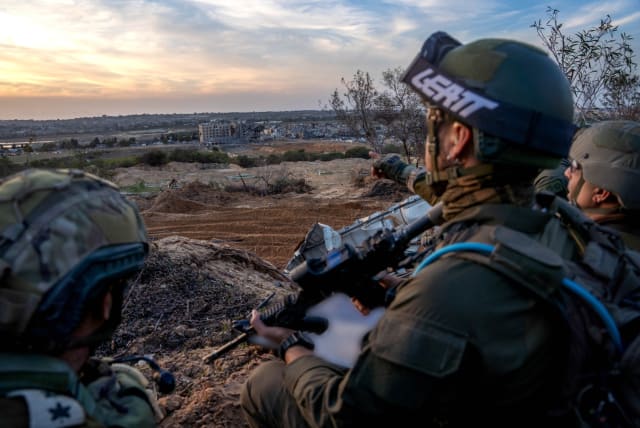Fertility ethics in wartime - opinion

Is the extraction of sperm and use for fertility purposes permitted, and if so, who are the people who should be allowed to request it?
The ongoing war and the scope of tragic loss have presented us with many difficult ethical questions that demand a response based on insight, understanding of precedent and academic and scholarly sources, and ultimately, sensitivity.
Among this is a deeply challenging, but sadly increasingly relevant question over the use of sperm from a fallen married soldier after his death, when the soldier left no specific prior directives on the issue.
From a basic ethical perspective, the fundamental question is whether such an extraction of sperm and use for fertility purposes is permitted, and if so, who are the people who would be allowed to make such a request?
Proper examination of this issue demands a significant review of the sources, but the overall conclusion is that only the soldier’s widow is permitted to request the extraction. This is based on an appreciation for the power of the bond of marriage and the firm belief that traditional marriage includes the intention to start a family.
But beyond that understanding, fundamentally we have no permission to force parenthood upon someone without their intent and knowledge, and therefore, this is an issue that should be viewed with the utmost seriousness.
Should soldiers be encouraged to think about this before entering combat?
As noted, this question only arises if the deceased individual had never expressed his intentions. If he had stated that, in the event of death, his sperm could or should be used, we of course respect that wish out of respect for the concept that “It’s a mitzvah to respect the will of the dead” and that a person is allowed to leave instructions for after their deaths that actions that are permitted by halacha will be implemented.
But the bigger issue is not simply whether it is permitted, but whether we should actively promote a policy where soldiers heading into battle should be encouraged to state their intentions on this core matter. We all know that Jewish tradition believes strongly in fertility and reproduction. But because the technical ability to extract and preserve sperm for fertility purposes is a modern innovation, most halachic sources weren’t able to weigh in on whether this is something that should be actively promoted.
Now that it is possible, we must ask whether society has a responsibility to encourage it, by educating married soldiers in advance of battle of this possibility and asking them to officially state their intentions, in a way not so dissimilar to how the issue of organ donation is presented. Should the government, or military, go so far as to create publicity platforms to advocate for the possibility of sperm preservation, or can we firmly state that this is a personal issue that has no place for the intervention of the public?
In this regard, it would appear that a middle ground is the appropriate one. We should respect that certain issues should not demand the involvement of our authorities, but that when relevant, the army or another public agency, does make itself available to assist an individual, or couple, for whom sperm extraction and preservation can provide a meaningful way to ensure a soldier’s legacy.
It is important, of course, to remember that the implications of such an act go far beyond just the decision itself and would potentially, and hopefully, produce the birth of a child. This will be a child born in the absence of his or her biological father, with a mother required to raise the child without the man she married and loved. These are deep and complex issues that reinforce why this question demands such careful consideration and the appreciation of not only whether we permit something because it can be done, but the far broader question of whether it should be done.
Among the many important outgrowths of this war, therefore, would be the establishment of a government committee to investigate and weigh this issue from every relevant parameter.
Composed of experts in medicine, ethics, religion, and social welfare, such a committee would be assigned to produce specific recommendations to the Knesset for how Israel should proceed in the future. As the legislative body charged with weighing matters of such weight and importance, the Knesset should ultimately draft legislation so as to allow a cohesive, yet highly sensitive, response to a question that is so central to who we are as a people inspired by justice, compassion, and concern for every citizen – present and future.
The writer, a rabbi, is director of Tzohar’s Center for Jewish Ethics.
Jerusalem Post Store
`; document.getElementById("linkPremium").innerHTML = cont; var divWithLink = document.getElementById("premium-link"); if (divWithLink !== null && divWithLink !== 'undefined') { divWithLink.style.border = "solid 1px #cb0f3e"; divWithLink.style.textAlign = "center"; divWithLink.style.marginBottom = "15px"; divWithLink.style.marginTop = "15px"; divWithLink.style.width = "100%"; divWithLink.style.backgroundColor = "#122952"; divWithLink.style.color = "#ffffff"; divWithLink.style.lineHeight = "1.5"; } } (function (v, i) { });

